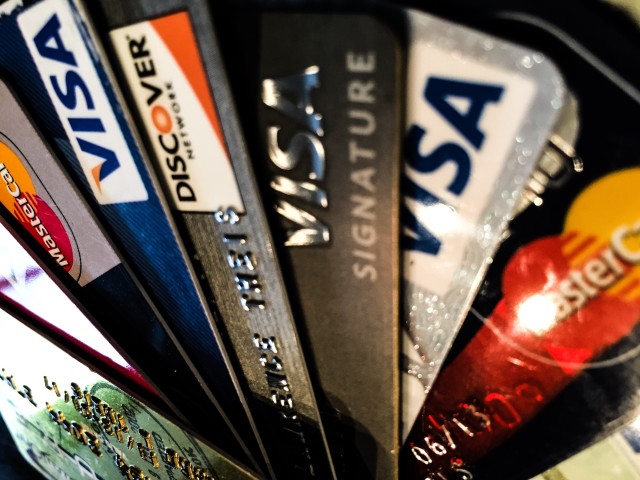identity-theft
What is Identity Theft?

Best Identity Theft Protection
Somewhere in the United States, a criminal is stealing someone’s identity as you read this sentence.
Identity theft is a major crime that occurs all too often, leaving its victims in financial distress.
Though criminals use technology tactfully to perpetrate identity theft on a global scale, there are surefire strategies you can use to protect yourself from identity theft and to recover quickly if you fall prey to it.
Whether you’re a conscientious individual looking to shield yourself or an unfortunate target, here’s everything you need to know about identity theft.
What Is Identity Theft?

 In order to combat identity theft, you need to first understand what it actually entails.
In order to combat identity theft, you need to first understand what it actually entails.
Identity theft is the act of stealing one’s personal information to carry out fraud or other criminal activities.
Identity thieves often use people’s names, social security numbers, birthdays, credit card or account numbers, and login information to gain access to their funds.
They then use that information to open accounts, obtain credit, file taxes, and commit other types of fraud that can be damaging to the victim’s finances.
Effects of Identity Theft
Identity theft damages your finances is more ways than one, affecting both your daily life and long term finances.
If you’re the victim of identity theft, here are some of the consequences you can expect to encounter as you work to recover.
Credit Score
Perhaps the most devastating impact of identity theft is the blow it delivers to your credit score.
Whether someone gets your credit card number and makes purchases with it, opens a credit card and spends in your name without making payments, or applies for loans in your name, your credit score can take a massive hit.
You will need to start monitoring your credit if this happens to you to help you build your credit back up.
Financial Loss
In some cases, you may experience an immediate financial loss if someone uses your personal information to access and steal your funds.
With your account number or login information, an identity thief could move money from your checking or savings account.
IRS Issues
When a criminal uses your name to file taxes, there is an unfortunate ripple effect. You could face IRS penalties, an exhaustive investigation, and issues in the future if your tax information is in fraudulent hands.
Loss of Accounts
Once an identity thief has gained access to your financial accounts, you’ll have to go through the hassle of canceling those accounts and opening new ones.
While less traumatic than some of the other consequences, this is an unwanted inconvenience in an already stressful time.
Loss of Privacy
Even if you create new passwords, open new accounts, and get fraudulent ones shut down, your personal information has still been exposed, potentially on a global level.
Time and Energy
Reporting identity theft, freezing and canceling accounts, working with credit bureaus to fix your report, and dealing with IRS inquiries can be incredibly draining and time-consuming.
While you can absolutely restore your good name and potentially recover your financial loss, it might take a great amount of effort to do so.
Types of Identity Theft
Financial Identity Theft
The most common type of identity theft you may be aware of entails thieves taking credit card or debit card numbers or hacking their way into your bank account to take your money.
But as we briefly mentioned above, there are plenty more ways thieves steal your personal information for their personal gain.
Tax Identity Theft
As highlighted above, this popular form of identity theft involves a criminal filing taxes in your name and keeping the refund you’re owed by the government. The thief also leaves you with a long and arduous recovery process.
Medical Identity Theft
Health insurance is a benefit identity thieves look to steal. In instances of medical identity theft, someone might steal your health insurance card or information to purchase drugs and pay for medical procedures or treatments.
LifeLock Review
Child Identity Theft
This sneaky form of identity theft often goes unnoticed for years as parents don’t typically sit around checking their children’s credit scores.
Criminals often target children’s Social Security Numbers and use that information to open credit cards and other accounts.
Social ID Theft
Unfortunately, social media is a popular target for identity theft. People can steal your images, name, and other personal information to pose as you on social media, or to create a new persona altogether without your knowledge.
This type of identity theft can be damaging to your reputation, and it can allow thieves to gain inside access to your connections and their personal information.
Criminal Identity Theft
People also use stolen identities to weasel their way out of the consequences of a crime they committed. In these cases, they might present the police with a false name and stolen ID to keep their name clean and their true identity concealed.
Identity theft isn’t limited to the types above. As technology advances and criminals become more tech-savvy, there will continue to be more types of identity.
How Identity Theft Happens
Here’s a brief overview of some of the most common ways identity thieves operate.
- Stolen credit cards. This form of identity theft could involve the thief literally stealing your credit card from your wallet or getting your credit card information online, which leads to method number 2.
- Stolen phone/computer. If someone steals your phone or computer, they may be able to hack into it and access your personal details and account logins, also leaving you without the convenience of your phone or computer.
- Stolen mail. Criminals often rummage through mailboxes in the wee hours of the morning or while most people are away at work to access financial account statements, tax documents, and other personal information.
- Internet hacking. Hackers use their tech-savvy to hack into the sites which store your private information.
- Malware. Computer viruses and malware allow identity thieves to access personal information from your devices.
- Data breaches. Sometimes personal information leaks span further than the individual level. Data breaches entail the release of a large group of people’s information to hackers.
- Spam/phishing. Spam emails and phishing scams often mimic official messages from your employer, institution, or organization which ask you to share personal information or make payments.
- Public wifi. When you log in to public wifi and enter sensitive data to a website, you run the risk of identity theft by skilled hackers.
- The dark web. The dark web is a place where criminals share individuals’ personal information, earning money off of your name and financial data.
- ATMs. Identity theft occurs all too often at ATMs, where thieves watch for your PIN, snag receipts, and gain access to your checking and savings accounts.
Warning Signs of Identity Theft
No matter how careful identity thieves are, there are some pitfalls they can’t avoid. Here are a few giveaways that could suggest you’re the unfortunate target of identity theft.
If you watch for these signs, you can quickly report the issue and restore your finances, hopefully with minimal consequences.
You may be a victim of identity theft if…
- Your bank statements don’t add up: When you see withdrawals or charges you aren’t responsible for, take action.
- Debt collectors are making unwarranted calls: When you start getting inquiries about debts that are in your name but not your responsibility, you should be concerned.
- Your mailbox is empty: If you’re waiting on bills, a new credit card, or statements from your bank that never arrive, they may have been stolen.
- Your mailbox is full: Conversely, when you start getting unexplained bills for medical services, purchases, or subscriptions, they could be the result of identity theft.
- Your credit report changes unexpectedly: When your score suddenly drops or indicates a credit check you know nothing about, something is amiss.
- Your taxes have already been filed: Getting notified by the IRS that someone has already filed your taxes is a surefire sign of tax fraud.
- You’re part of a data breach: If you receive word from a company that your data has been breached, you can expect that it’s in the hands of identity thieves.
How to Recover After Identity Theft
When your identity is stolen, it can take more than just a quick phone call or report to completely resolve the issues.
The first step, though, is to report it to the Federal Trade Commission. You can file your report at IdentityTheft.gov or via phone at 1-877-438-4338.
The FTC website will walk you through a series of steps to recover your stolen identity and track your progress along the way.
After filing with the FTC, you should review your credit report and alert the bureaus to the fraudulent activity, applying a 7-year fraud alert.
Once you’ve notified the credit bureaus, you should let all of your lenders know, including any credit card companies where you hold an account.
You should also let your state and federal government agencies know. Finally, you should carefully watch your credit report to make sure there is nothing suspect on it.
How You Can Avoid Identity Theft
There are some strategies you can use to prevent yourself from being targeted by identity thieves.
In addition to carefully watching your mailbox, financial statements, and credit reports, you can safeguard your sensitive information and keep it out of the hands of criminals.
Use your SSN sparingly and try not to keep your card in your wallet. Instead, keep it in a safe place.
You should also take the time to shred your old personal information, like bank statements, bills, receipts, and credit card offers.
Snip your old cards as well, as criminals are willing to rummage through garbage to obtain that information.
Last, take advantage of technological security features. Lock your phone, download firewall software, and think carefully when you create passwords and security questions.
While you may be tempted to recycle passwords and opt for the easiest security questions, don’t. A hacker accessing one of your passwords is bad enough. If they access all of them, it could leave your finances in shambles.
They can also easily find your hometown or mother’s maiden name. Instead, consider a question only you know the answer to.
Be smart, be vigilant, and play your part in protecting yourself from identity theft.
IdentityForce Review
Unmasking Online Deception: An In-Depth Social Catfish Review
Purple Garden Psychics – ($1/Min) FREE Trial Offers, Real Experience & Benefits And More

Refinancing an Auto Loan: How to Know If It’s a Good Idea

Reverse Mortgages Pros and Cons: Ripoff or a Good Idea?

8 Ways it Just Got Easier to Achieve Student Loan Forgiveness
Unmasking Online Deception: An In-Depth Social Catfish Review

Orchard Bank Credit Cards | NOT a Scam!

PrivacyGuard Review

How to choose where to study as an international student


